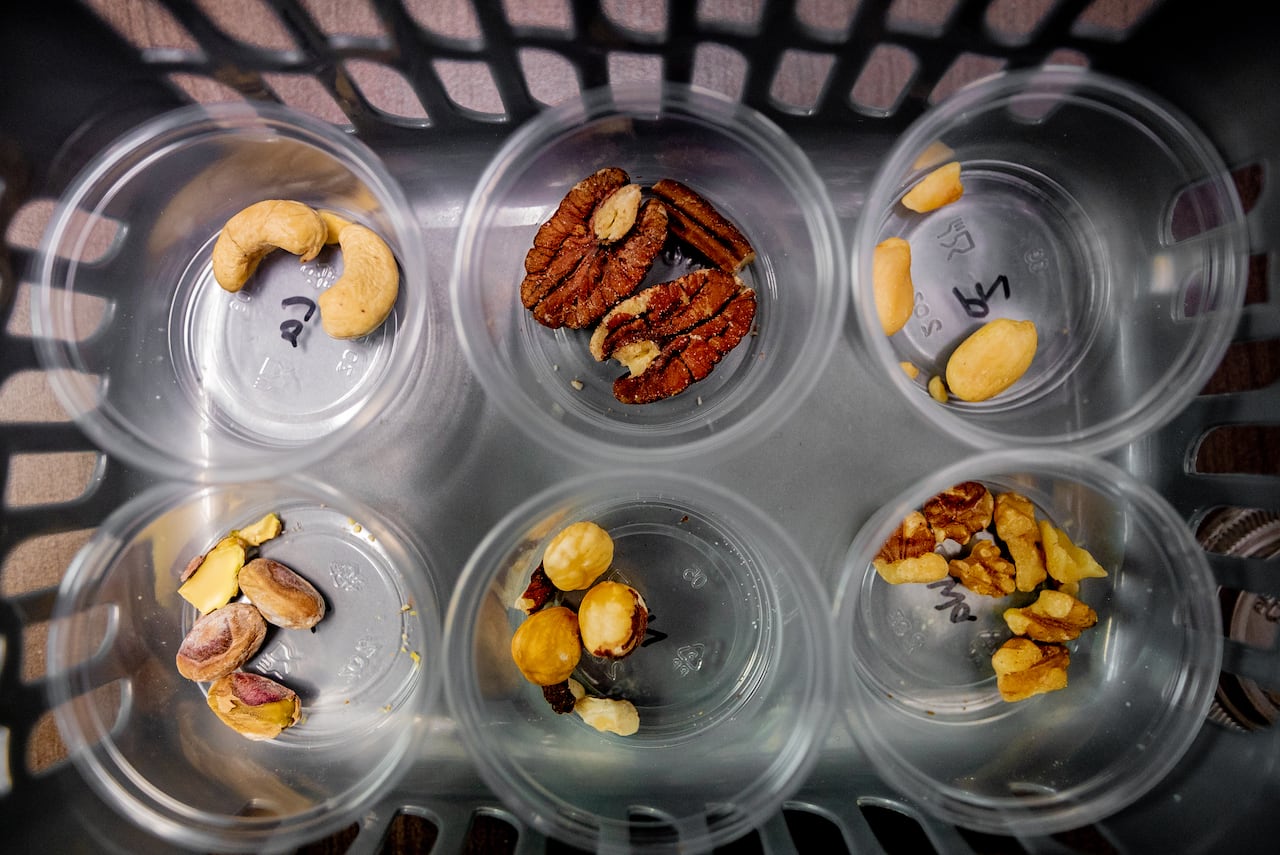A decade after a landmark study proved that feeding peanut products to young babies could prevent the development of life-threatening allergies, new research finds the change has made a big difference in the real world.
About 60,000 children have avoided developing peanut allergies after guidance first issued in 2015 upended medical practice by recommending that caregivers introduce the allergen to infants starting as early as four months.
“That’s a remarkable thing, right?” said Dr. David Hill, an allergist and researcher at Children’s Hospital of Philadelphia and author of a study published Monday in the medical journal Pediatrics.
“I can actually come to you today and say there are less kids with food allergy today than there would have been if we hadn’t implemented this public health effort,” he added.
Hill and colleagues analyzed electronic health records from dozens of pediatric practices to track diagnoses of food allergies in young children before, during and after the guidelines were issued.
The researchers found that peanut allergies in children ages zero to three declined by more than 27 per cent after guidance for high-risk kids was first issued in 2015, and by more than 40 per cent after the recommendations were expanded in 2017.
Canadian researchers found that restricting foods, such as nuts and peanuts, at schools isn’t the best way to protect kids from life-threatening allergic reactions. CBC’s Deana Sumanac-Johnson breaks down the change.
The effort hasn’t yet reduced an overall increase in food allergies in the U.S. in recent years. About eight per cent of children are affected, including more than two per cent with a peanut allergy.
An allergic reaction to peanuts happens when the body’s immune system mistakenly identifies proteins in peanuts as harmful and releases chemicals that trigger allergic symptoms, including hives and respiratory symptoms. Sometimes, it can even cause anaphylaxis, a life-threatening kind of reaction that can include a drop in blood pressure, dizziness, trouble breathing and more.
Groundbreaking 2015 study
For decades, doctors had recommended delaying feeding children peanuts and other foods likely to trigger allergies until age three. But in 2015, Gideon Lack at King’s College London published the groundbreaking Learning Early About Peanut Allergy, or LEAP, trial.
Lack and colleagues showed that introducing peanut products in infancy reduced the future risk of developing food allergies by more than 80 per cent. Later analysis showed the protection persisted in about 70 per cent of kids into adolescence.
The study immediately sparked new guidelines urging early introduction of peanuts, and the Canadian Paediatric Society recommends introducing common allergenic foods, including peanuts, to babies between four and six months of age.
But putting those guidelines into practice has been slow in some places.
Only about 29 per cent of pediatricians and 65 per cent of allergists reported following the expanded guidance issued in 2017, surveys found. Confusion and uncertainty about the best way to introduce peanuts early in life led to the lag, according to a commentary that accompanied the study. Early on, medical experts and parents alike questioned whether the practice could be adopted outside of tightly controlled clinical settings.
The data for the analysis came from a subset of participating practice sites and may not represent the entire U.S. pediatric population, noted the commentary, led by Dr. Ruchi Gupta, a child allergy expert at Northwestern University.
However, the new research offers “promising evidence that early allergen introduction is not only being adopted but may be making a measurable impact,” the authors concluded.
Advocates for the 33 million people in the U.S. with food allergies welcomed signs that early introduction of peanut products is catching on.

“This research reinforces what we already know and underscores a meaningful opportunity to reduce the incidence and prevalence of peanut allergy nationwide,” said Sung Poblete, chief executive of the non-profit group Food Allergy Research & Education (FARE).
The new study emphasizes the current guidance, updated in 2021, which calls for introducing peanuts and other major food allergens between four and six months, without prior screening or testing, Hill said. Parents should consult their pediatricians about any questions.
“It doesn’t have to be a lot of the food, but little tastes of peanut butter, milk-based yogurt, soy-based yogurts and tree butters,” he said. “These are really good ways to allow the immune system exposure to these allergenic foods in a safe way.”
Tiffany Leon, 36, a Maryland registered dietician and director at FARE, introduced peanuts and other allergens early to her own sons, James, 4, and Cameron, 2.
At first, Leon’s own mother was shocked at the advice to feed babies such foods before the age of three, she said. But Leon explained how the science had changed.
“As a dietician, I practice evidence-based recommendations,” she said. “So when someone told me, ‘This is how it’s done now, these are the new guidelines,’ I just thought, OK, well, this is what we’re going to do.”






